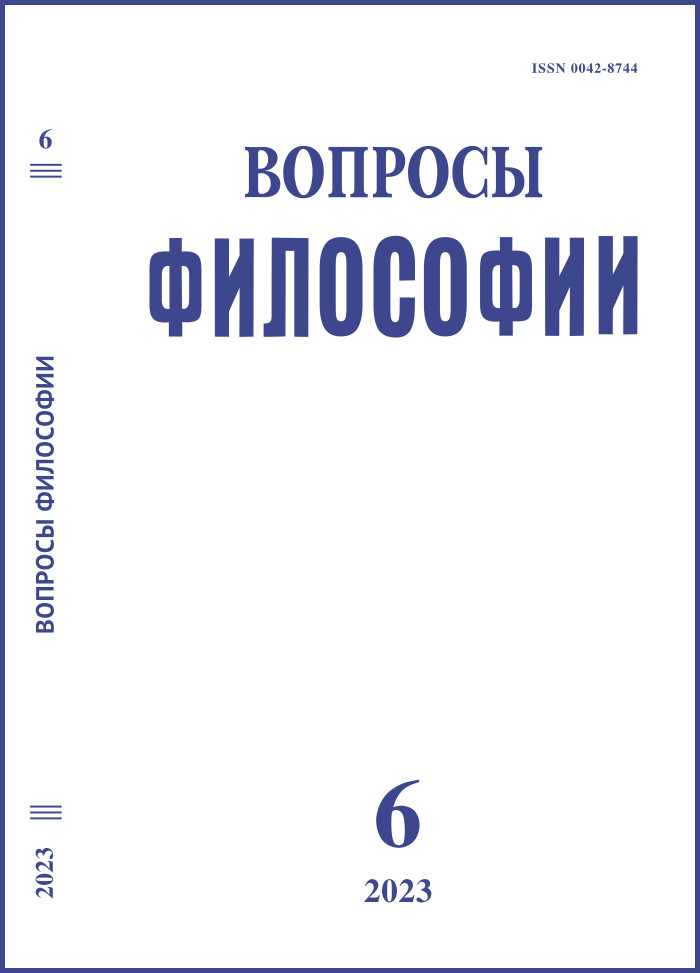Semiosis of Russian Culture and the Philosophy of Creativity in the Works of Yu.M. Lotman
DOI:
https://doi.org/10.21146/0042-8744-2023-6-160-163Keywords:
semiosphere, semiosis, Russian culture, creativity, dialogue, cultural approach, historical dynamics of cultureAbstract
The most important result of the semiotic conceptualization of the artistic process in Lotman’s research was the interpretation of literary phenomena in a broad historical and cultural context. This led him to create a holistic cultural philosophical concept. Its model is the Russian culture of the classical era, interpreted as an established historical phenomenon in the diversity of spiritual and intellectual traditions and practices. At the same time, Lotman considers the process of creating a national culture as an open one, in which its authors each time recreate the value-semantic content and enrich the sphere of cultural meanings. The philosophical and theoretical core of Lotman’s concept is, on the one hand, the phenomenon of creativity and artistic consciousness of the author, on the other, cultural integrity in the historical dynamics of its linguistic, artistic, aesthetic, socio-political, everyday forms. The genesis of cultural forms was interpreted by Lotman as a process of the semiosis of culture – the creation, development, preservation, inheritance and reinterpretation of semantic structures represented by the integrity of texts of various symbolic nature. The philosophical aspect of Lotman’s concept is the universalization of cognitive procedures and philosophical strategies for interpreting cultural phenomena, in short, in the creation of a philosophically thematized concept of the cultural history of Russia.

